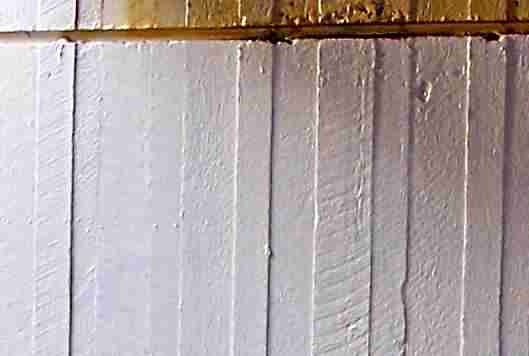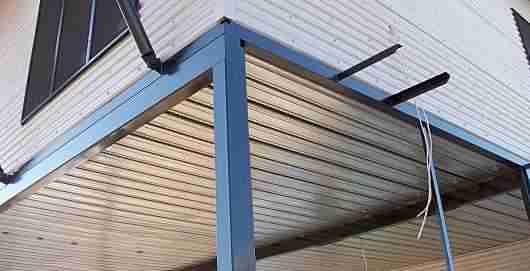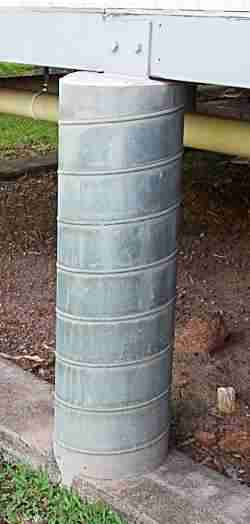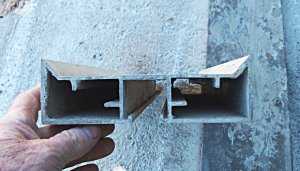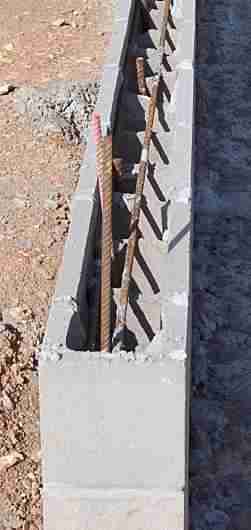 |
||||||||||||||||
Formwork Materials and systems
This formwork materials page came about after a couple of emails from Tommy Sanford, 90% of what you see here is Tommy's work. I have just a couple of photos. As I said to Tom, 50% of what he sent me I was new to me and the rest I'd forgotten, so once again a new friend on the Internet has given my a push and got my act into gear. Tommy says in his intro, "I have lived in the Philippines, a 3rd world country. for about 18 years. I was a general contractor in the USA 25 years before that. Form systemsOnly demanded in construction when in it must be molded vertically or suspended horizontally. The cost of false work (either cost per use or overall lifetime costs) varies dramatically as to system chosen. Systems are chosen considering many factors, including;
Generally speaking, the faster you can strip the less wear on your forms. In the 3rd world I try to strip in 6 hours so I can get 2 casts a day and keep the crew busy. The smother the surface and stiffer the form will determine the earliest strip times. MaterialsNote! When we say advantages or disadvantages, we are only talking general terms, as formwork jobs come in all ranges and one persons crippling cost disadvantage may be insignificant to another.Untreated woodAdvantages:-
Disadvantages:-
Untreated plywoodAdvantages:-Same as above for untreated timber but a smoother finish.Disadvantages:- Same as above but greater cost and availability in some countries. Coated PlywoodAdvantages:-
Steel formworkAdvantages
Disadvantages.
Fiberglass formwork.I have not seen non-custom fiberglass systems, but they may be out there. A good use for fiberglass pans would be center floor decks in a high rise where the underside of the floor was visible, or in custom arch. designs on exterior of building.
Aluminum formwork.Mostly for basements where nice finishes are needed. some very nice designs or finishes are possible, "brick" look or "rock wall" look are some examples.
Concrete itself as formwork.Commonly called "pre-cast". Shapes that are built in such a way that when concrete is added it will build the final structural shape and are never "stripped'. Advantages:-
Fabric formworkA system where a fabric membrane is stapled to very lightweight forms.Latex, rubber formworkUsed in the production of small moulded concrete pieces that would be extremely hard by other means. The rubber nature of the mould allows it to stretch when being stripped off the piece. Typically used as a cottage industry type business making moulded garden ornaments etc. Release agents.Many commercial release agents are available, if they are not available in quantities or cost that fits your project, you may consider; Used vegetable oil, works OK and is cheap, will not leave a stain on new concrete. a good source is fast food restaurants like Mac Donalds. will rot plywood eventually. Used motor oil. Works well, can be very cheap if you live near a dump. It is really dirty to use and stains the concrete. Grease and diesel, works OK... clean to use, a little expensive if the project is large. Parafin and diesel, works well, fairly clean and no residue on concrete.(heat diesel until the candle wax melts, a really hot day will do it or bucket with glass over it on a hot day.) Cheaper than grease and improves the number of uses as, each use the diesel evaporates leaving your form coated in parafin. Parafin will not allow you to repair paint type coatings as paint won't stick to it. Not so cheap. Not found it yet? Try this FAST SITE SEARCH or the whole web |
Hire Equipment  Furniture Fittings - Architectural Hardware - Electronic Locking Systems - Technical Hardware BuilderBill sponsorship Other Formwork Pages.
|
|||||||||||||||
|
|
||||||||||||||||
|
Please Note! The information on this site is offered as a guide only! When we are talking about areas where building regulations or safety regulations could exist,the information here could be wrong for your area. It could be out of date! Regulations breed faster than rabbits! You must check your own local conditions. Copyright © Bill Bradley 2007-2012. All rights reserved. |
||||||||||||||||
